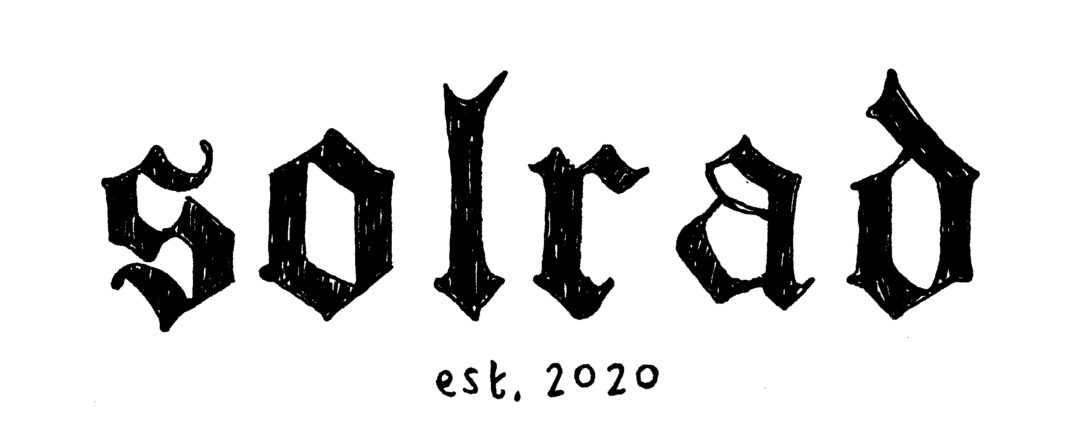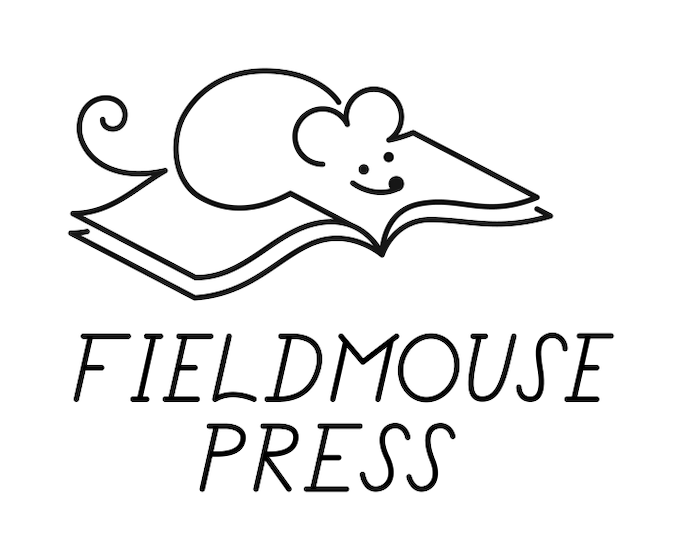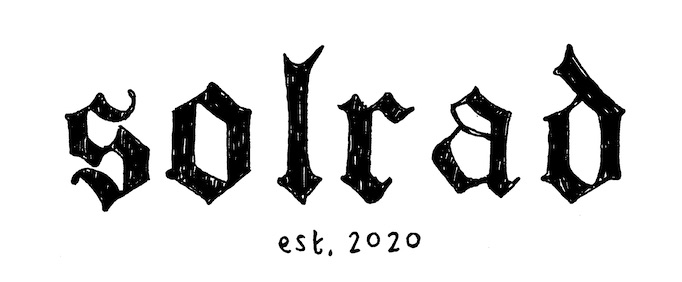The launch of a new source of comics criticism is always something to celebrate. SOLRAD, the first project from nonprofit publisher Fieldmouse Press, debuted earlier this month. The website publishes comics and comics criticism from a host of familiar faces. I reached out to SOLRAD’s Editor-in-Chief Daniel Elkin and Publisher Alex Hoffman to learn more about the website, its nonprofit status, and its ambitions going forward.
Can you briefly describe your backgrounds in comics prior to the launch of SOLRAD?
Alex Hoffman (AH): Sure. Prior to starting Fieldmouse Press and launching SOLRAD, I was a comics critic with my own website, Sequential State. I also have bylines at TCJ and The ComicsMNT (rest in peace). I’ve been writing about comics since 2008, although didn’t start working in small press comics until 2014.
Daniel Elkin (DE): I started writing about comics in any serious manner for Comics Bulletin back around 2010. It was there that I discovered the world of small press and self-published comics. At one point I was Small Press editor of the site. When that kinda fizzled out, I started doing some work for some other sites. I was kinda shocked at how little critics were being paid or valued on the internet, so I decided to focus my energies on my own site, Your Chicken Enemy, and started paying other critics for their work to feature there. As this endeavor was self-funded, it was not a sustainable business model.
What made you decide on SOLRAD as the website’s title?
AH: It’s a combination of wanting something snappy, something short, and something comics-related. Our colleague and collaborator Rob Clough suggested using a word from Mort Walker’s The Lexicon of Comicana, and solrad (which is the squiggly line that comes off of a source of light, such as the sun) seemed like a good fit. There’s a lot of utility in that little line. It helps the reader see the sun as bright and warm, it distinguishes warm light from cool. We want SOLRAD to be similar – a place of illumination for the comics arts.
Why did you choose to make SOLRAD distinct from Fieldmouse Press?
AH: Because we see SOLRAD as part of a longer conversation about art comics in 2020. Let me explain.
Fieldmouse Press comes from a conversation in early 2019 about collaborating as a group of critics to organize and devote resources to one specific place. The original four people were Me, Daniel Elkin, Rob Clough, and Ryan Carey. The original intent was just a consolidation of our work. But that idea felt like something that wasn’t exactly what was needed. We brainstormed and worked on some proposals, but in the end, we realized that what we wanted to do was bigger than the sum of four individual comics blogs.
What would become SOLRAD was our main goal when we initially started talking about making a new comics criticism and journalism hub. But we realized that the best way to make something like this work was to house it inside of a structure that made financial sense.
Daniel and I get that writing for comics websites right now is a tough rap. Pay is poor, and a lot of major comics sites have turned to “Buzzfeedification,” if I can use that word, to generate ad revenue. I feel that this kind of writing coarsens the already tentative body of comics criticism as an art criticism movement, and I know Daniel agrees. But if the article doesn’t get enough ad clicks, what do you do?
That’s why we established Fieldmouse Press as a 501(c)(3) nonprofit. As a nonprofit charitable organization, we can use individual donations, grants, and other funding sources as a way to enhance the comics criticism available to the public, encourage dialogue and meaningful exploration of the form, and not have to rely on advertising revenue to pay writers a fair and honest wage.
But exploring the form of comics doesn’t stop at writing about them. Anyone who is trying to advance the cause of comics for the general public also needs to think about comics in multiple ways. We have to ask – are there comics that should exist, but don’t because of the broken market forces we are already dealing with? That’s where a nonprofit publishing company can take risks that others might not take because of the nontraditional funding it has access to.
The nonprofit publisher of literary fiction is not a new concept. Places like Open Letter, Deep Vellum, Graywolf Press all do excellent work in a nonprofit space. We wanted to see if that model could also apply to comics publishing.
How does SOLRAD separate itself from other sources of comics criticism, including websites you’ve created and written for in the past?
AH: This is a much more collaborative process than anything I’ve ever done before. And we’re paying critics more than I’ve ever been paid to write about comics.
DE: As well, in the past, a lot of comics criticism was either just glorified press releases or a platform for a particular point of view as to what constituted the cannon of comics, often written by a rather insular group of critics. One of the main goals of SOLRAD is to not only expand the number and diversity of critical voices but also to open up the conversation concerning comics as an art form. My personal goals as Editor-in-Chief of SOLRAD are to position us as a site where people will always be able to come and find something new and exciting in the broad world of small press and self-published comics, curate and publish resources for creators that will benefit them, and open up the medium itself to a wider audience.
What kind of preparation went into launching the site?
AH: The scope of this question is mind-boggling. We did artist and critic surveys on rates and payment practices, did a marketplace review for material being published, created a new company, and built a website that is clean, functional, and hopefully pleasant to look at. We’ve been actively working on the website for at least 3 months prior to launch, and our initial work for launching Fieldmouse started in the Spring of 2019.
DE: As I said in another recent interview, if it were not for Alex, we would not be where we are today. Alex tackled almost all the paperwork necessary for us to achieve our nonprofit status, and he pretty much single-handedly built the websites from scratch. As much as Fieldmouse Press and SOLRAD are the children of the four of us, it was really Alex who did all the birthing.
How did you put together the staff?
AH: The staff of SOLRAD are Daniel Elkin, me, Rob Clough, and Ryan Carey. We’ve been working together for a while and the four of us were the ones who initially came up with the concept. We didn’t look for anyone else outside of that group because the managerial work of SOLRAD (editing, publishing, etc.) is work that we can’t afford to pay people for right now.
Fieldmouse Press, as a nonprofit organization, has a Board of Directors, which includes additional people. We continue to look to expand our board to make sure that the diverse populations that make up the comics sphere are well represented.
DE: I like to think the four of us have a certain level of respectability within the small press comics community. We’re known entities and I feel people trust us as critics and supporters of the medium. We’re trying to leverage all this to bring in as many voices as we can, not only to feature on SOLRAD but also to take on Board responsibilities at Fieldmouse Press.
How has the response been so far?
AH: The response has been great! We’ve smashed our initial goals for readers, traffic, and page hits. I think this speaks to both the talent of our guest writers thus far (Kim Jooha, Anya Davidson), and the desire for there to be another place people can go to on a regular basis that takes comics criticism a little deeper, a little harder, a little more seriously.
DE: I’ve only heard encouraging things so far. I think people are pretty pleased with what we are doing.
The website invites readers to donate to support SOLRAD. Outside of that, how are you funding the operation?
AH: We’re a 501(c)(3) nonprofit, and we are working on a few different funding plans outside of individual donations. Our end goal is to fund the majority of the work of the press with grant funding.
DE: I’ve been doing a bit of behind the scenes work in getting fiscal sponsorship from the Nevada County Arts Council. Their sponsorship will help us in the grant process in ways that we otherwise wouldn’t have access to as a new arts nonprofit. It’s our mission to make grant organizations aware of the importance of the comics arts as they benefit the public. Our hope is that applying under these auspices will open the doors for other comic artists and related organizations.
Have you considered starting a Patreon?
AH: Yes, but Patreon isn’t a platform for nonprofits. It’s a platform that treats its artists like for-profit businesses. It also charges a significant processing fee (8% for new entrants). Nonprofit fundraising platforms like the one we use (Donate.ly) have better terms for nonprofits, have all the features of Patreon, and allow donations to actually be considered tax-deductible.
If we see that people want to use Patreon, we’ll consider that in the future. But ultimately we chose the path of nonprofit charity status because we wanted to allow donors to get additional benefits for choosing to support us.
Where do you hope SOLRAD will go (and grow) in the years to come?
AH: Ultimately we’d like to be publishing more work on a daily basis. I’d like to pay more writers to write for the site. We’re limited by our current revenue in that regard, so the more fundraising and grant writing we do, the easier it will be to make that happen. We’re also going to be publishing new comics for the web, so I’d like to see that flourish. And I’d like to push into other areas of media – web-based video like YouTube, potentially, more podcasts, and other large scale projects. And who knows, maybe try to win an Eisner? The sky’s the limit.
DE: When it comes to this endeavor, I don’t even want the sky to be a limit. I want us to be a platform for all sorts of media that celebrates the comics arts. I’d love to be a springboard for the financial success of critics, artists, and publishers. And maybe, just maybe, someday somebody will name a sandwich after us.
Visit SOLRAD for a new source of intelligent comics commentary and criticism. Follow the interviewees on Twitter @DanielElkin and @sequentialstate.
Matt Chats is an interview series featuring discussions with a creator or player in comics, diving deep into industry, process, and creative topics. Find its author, Matt O’Keefe, on Twitter and Tumblr. Email him with questions, comments, complaints, or whatever else is on your mind at [email protected].














